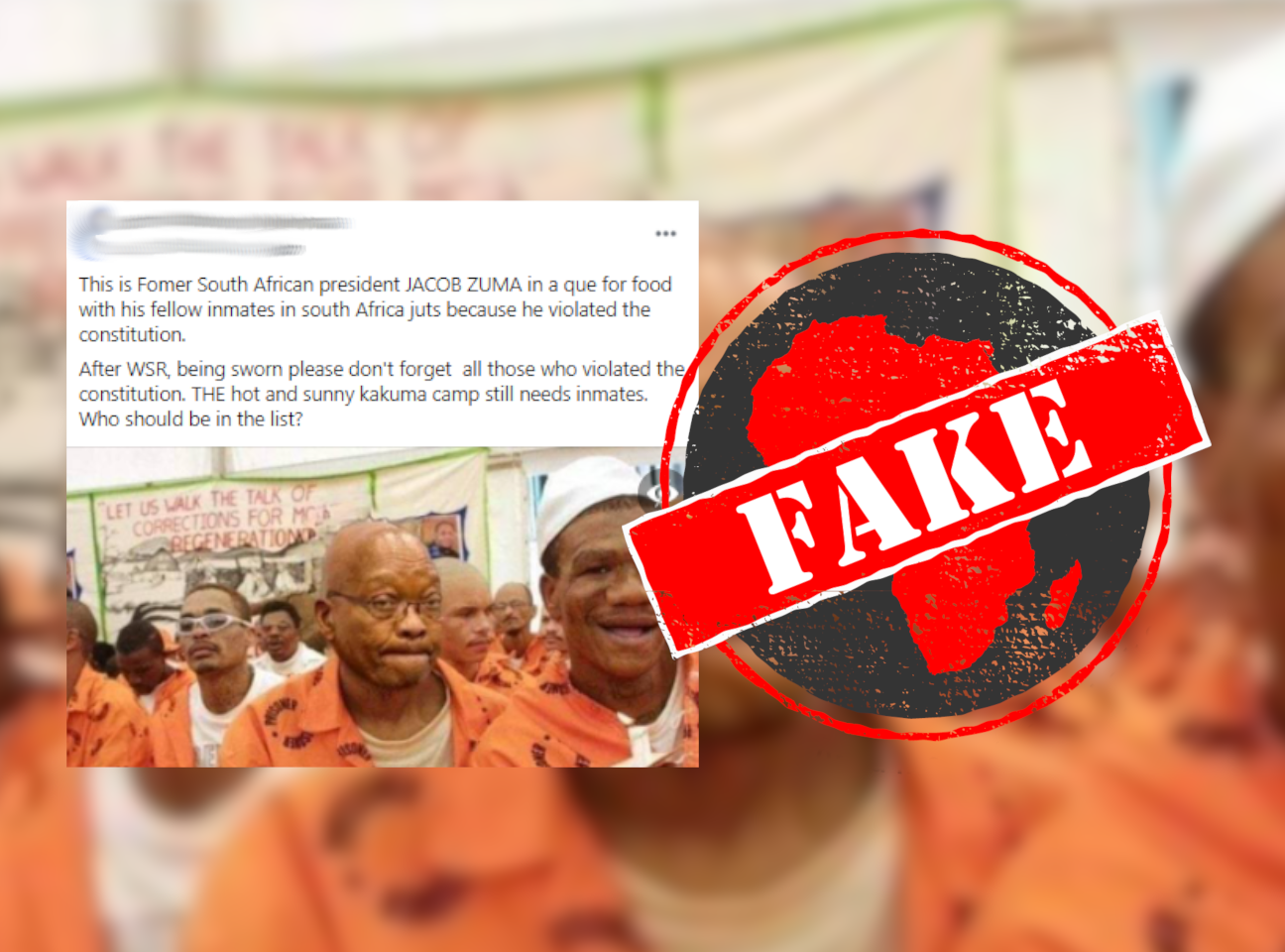Is the former South African president queuing for food alongside other common prisoners? A Facebook user shared a photo he claimed showed jailed Jacob Zuma, dressed in distinctive orange prisoner overalls.
The photo was posted in a public Facebook group in Kenya with over 320,000 members.
It is captioned: “This is Fomer South African president JACOB ZUMA in a que for food with his fellow inmates in south Africa juts because he violated the constitutio[n]. After WSR, being sworn please don't forget all those who violated the constitution. THE hot and sunny kakuma camp still needs inmates. Who should be in the list?”
WSR refers to Kenyan deputy president, William Samoei Ruto. Kakuma is a large refugee camp in northwestern Kenya.
Zuma handed himself over in July 2021, after South Africa’s constitutional court found him guilty of contempt of court and ordered his imprisonment in June.
Zuma had failed to appear before a commission investigating corruption during his rule from 2009 to 2018.
But does this photo show Zuma queueing for food alongside other prisoners? We checked.

Original photo from 2002
A reverse image search led us to the original photo on the AFP website. Zuma is not in it.
It was first published on 12 October 2002 and shows prisoners in Pollsmoor Prison in Cape Town, during a visit by a government official.
The version in circulation on social media has been manipulated, with Zuma’s head superimposed on the original.
Photos of Zuma on the night he handed himself over to correctional services were leaked shortly after. Prison authorities condemned this and said the photos had been “stolen”. No photos of Zuma in prison or wearing orange overalls have been made public.
Republish our content for free
For publishers: what to do if your post is rated false
A fact-checker has rated your Facebook or Instagram post as “false”, “altered”, “partly false” or “missing context”. This could have serious consequences. What do you do?
Click on our guide for the steps you should follow.
Publishers guideAfrica Check teams up with Facebook
Africa Check is a partner in Meta's third-party fact-checking programme to help stop the spread of false information on social media.
The content we rate as “false” will be downgraded on Facebook and Instagram. This means fewer people will see it.
You can also help identify false information on Facebook. This guide explains how.


Add new comment